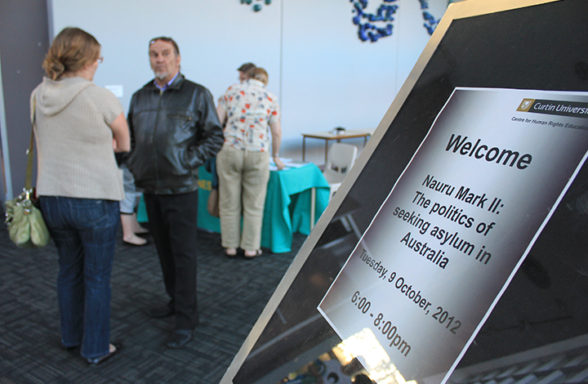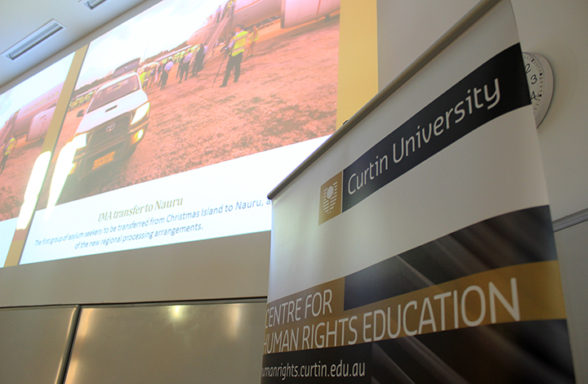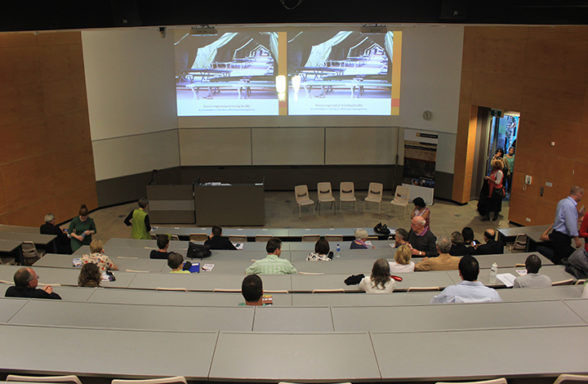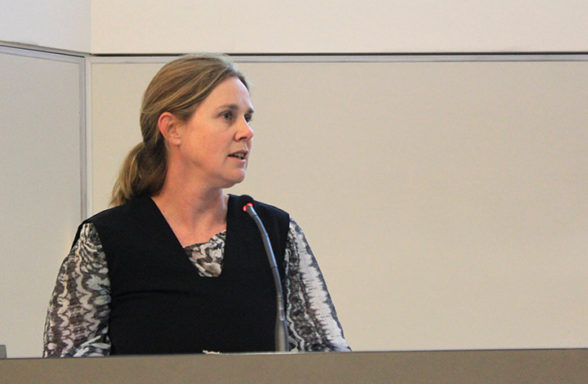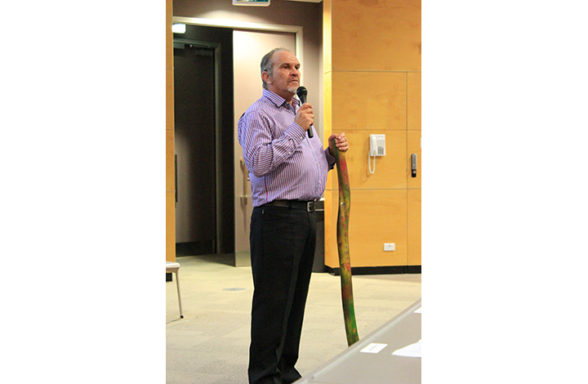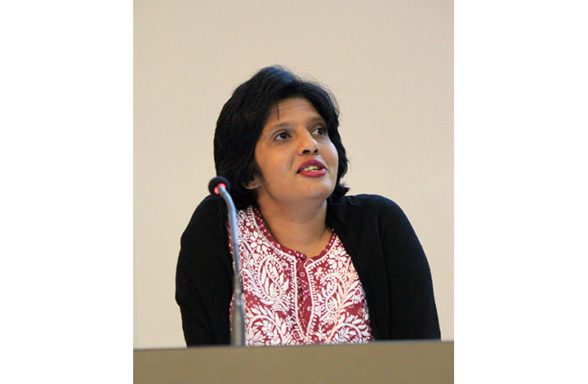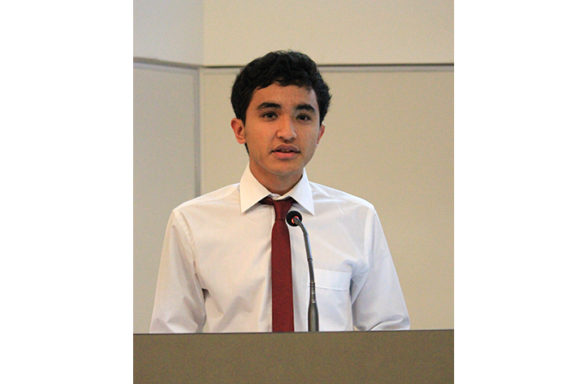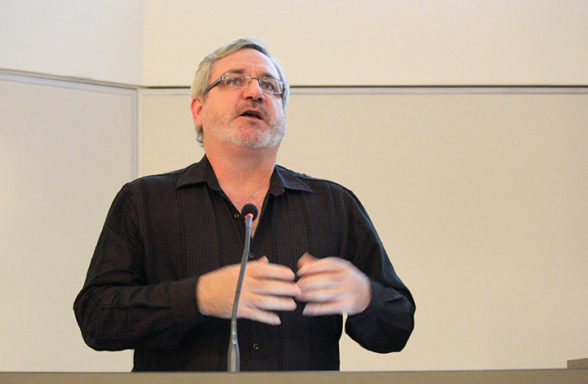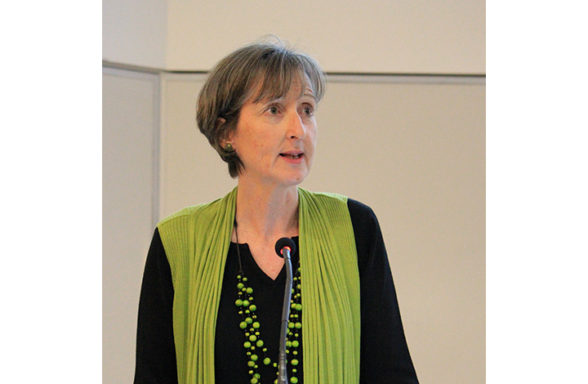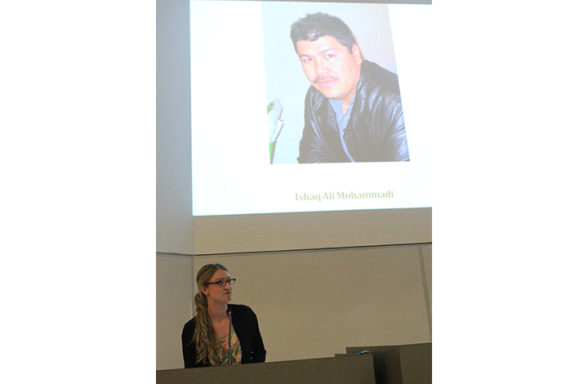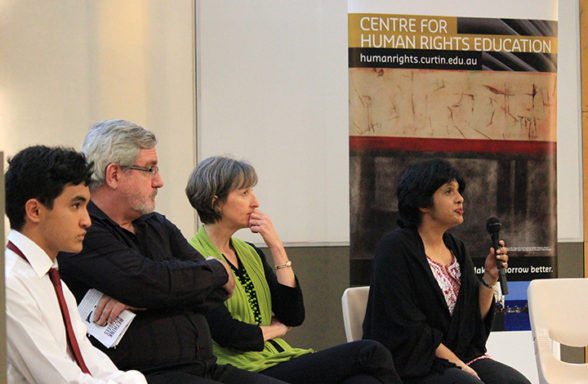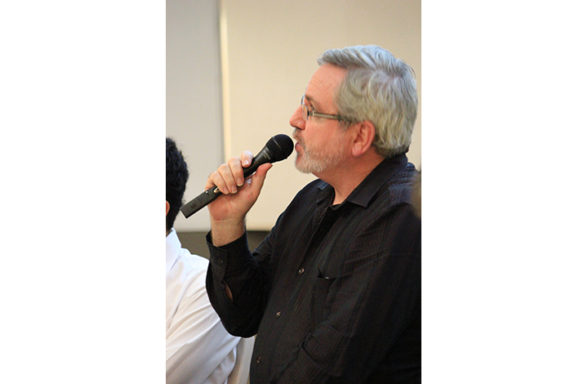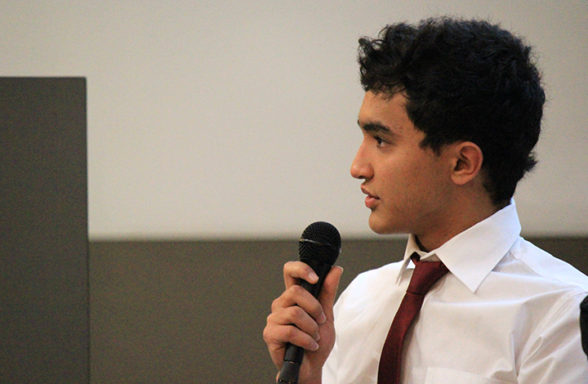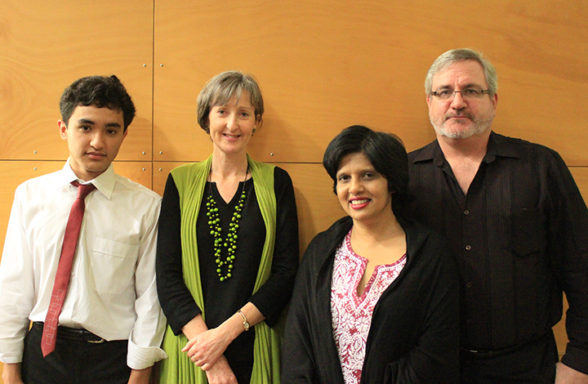2012
December 2012
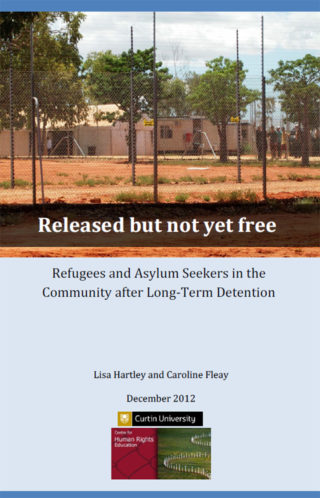
Post date – 18 December 2012
Report: Released but not yet free
Dr Lisa Hartley and Dr Caroline Fleay have released a research report titled Released but not yet free: Refugees and Asylum Seekers in the Community after Long‐Term Detention. The report explores the experiences of asylum seekers released into the community after long-term immigration detention in Australia (between 15 – 25 months). This is the first formal research project to focus on the topic to date. All of the men interviewed were released prior to their protections claims being finalised and were issued a Bridging Visa E or released into the Community Detention Program.
The report highlights factors that have had a major impact on the experiences of the men and the implications of these for practice and policy.
This report is timely given the Minister for Immigration and Citizenship’s recent announcement that asylum seekers who arrived by boat from 13 August 2012 would receive fewer entitlements upon their release into the community than those interviewed. These asylum seekers will have no work rights and receive limited financial support.
The findings of this report raise serious concerns about the consequences of the Minister’s announcement for this cohort of asylum seekers and their ability to sustain an acceptable standard of living in the community. In addition, the policy undermines a number of Australia’s international human rights obligations, and it does not comply with the UNHCR’s recommended basic reception standards for asylum seekers.
You can download the paper in full here. Also found on the Australian Policy Online website here.
(Written by Dr Lisa Hartley)
November 2012
Post date – 5 December 2012
Opinion Piece: Australia is now Uncle Sam’s ‘Keystone of the Pacific’: learn from Okinawa
On the 30th of November 2012, The Conversation website published an article by Centre for Human Rights Education Adjunct, Dr Miyume Tanji titled Australia is now Uncle Sam’s ‘Keystone of the Pacific’: learn from Okinawa.
Miyume’s piece is about the growing presence of the US military in Darwin and the effect this may have on the local population, based on her studies of what has happened in Okinawa with the US military that has been established there for many decades.
Miyume writes, “Without knowing, Australia could become a new US “keystone of the Pacific”: a name given to Okinawa – a Japanese territory and a US legacy base won in World War II, located northeast of Taiwan.
What is the purpose of the US military presence in Australia, and what does it mean for people on the ground? Until now, most public debate has focused on the first question; whether the presence will be good for Australia, especially that it may be harmful for our relations with China.
Not much is said about how it will impact local people. On this subject, we can learn much from the people’s dealings with the US military presence (especially Marines) on Okinawa. For decades, even when they threaten the right to autonomy and a peaceful existence of the hosting community, the US military’s extraterritorial privileges have given first priority to protecting their personnel and ability to conduct operations.”
Miyume’s piece raises some important concerns. It is definitely worth a read and can be found in full here.
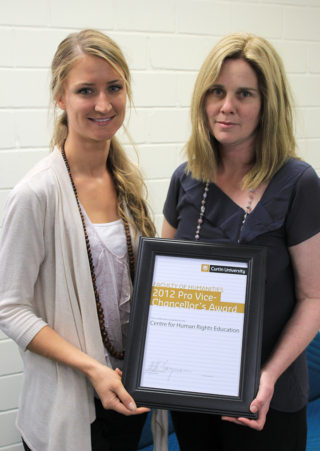
Post date – 4 December 2012
The Centre receives the Curtin Faculty of Humanities 2012 Pro-Vice Chancellor’s Award
The Centre for Human Rights Education received the Faculty of Humanities 2012 Pro-Vice Chancellor’s Award for research and advocacy in the area of refugee rights. This award was presented at Curtin University on 20 November 2012. The award was in recognition of the work of CHRE staff Caroline Fleay, Lisa Hartley, Mary Anne Kenny, Lucy Fiske, and adjuncts Linda Briskman, Anna Copeland, Michelle Dimasi and Susie Latham’s research and advocacy on the rights of asylum seekers and refugees in Australia. All made a strong contribution to the Centre receiving this award.
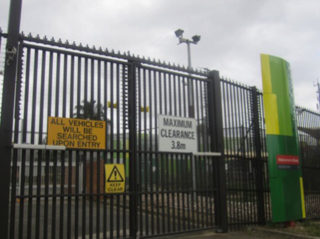
Post date – 22 November 2012
Villawood Detention Centre: Growing Despair for Refugees with Negative ASIO Security Assessments
Dr Lisa Hartley from the Centre for Human Rights Education recently visited the Villawood Immigration Detention facility in Sydney which includes the maximum-security centre that holds males and the Sydney Immigration Residential Housing (IRH) that holds mainly women and families (including children). The IRH includes in a small row of single-storey units, which are surrounded by CCTV cameras and fences.
Lisa met with individuals at the IRH who, despite being found to be refugees have had negative security assessments from the Australian Security Intelligence Organisation (ASIO) and as such cannot be granted visas. Family members, including children also cannot be granted visas. There are currently 54 refugees in detention across Australia in this situation.. Many of these refugees have been in detention for extensive periods of time. The current practice holds that they are not told why ASIO believes they are a security threat or what evidence the belief is based on. They are also denied the right to apply for a permanent visa. Their detention is, in effect, indefinite.
Refugees with negative ASIO assessments are growing increasingly distressed. Lisa spoke with one man who has been detained for over three years. Tragically, three days after Lisa’s visit he attempted to take his life. His desperation, stemming largely from a lack of foreseeable end to his and others’ indefinite detention, is not isolated.
Lisa met with a woman who has a negative ASIO assessment who is feeling similarly desperate. Her child is also detained at the IRH. Although children are allowed to go to school, they are escorted to school and back to the IRH by Serco officers. They are also only permitted to play within the fenced boundaries of the facility.
In October 2012, the High Court of Australia ruled invalid the regulation that allows for the denial of a visa to those who fail an ASIO security assessment. In response, the Federal Government announced the introduction of an independent review process for such persons. Although this is a welcomed announcement, it is not without strong reservations due to the non-binding nature of the outcome of any review. In addition, while some of the refugees have been issued with a letter outlining this change, there has been no clear progress either in their protection visa applications or in finding alternatives to their indefinite detention.
CHRE continues to advocate for statutory judicial review of ASIO security assessments and for the urgent release of refugees with failed ASIO assessments from indefinite detention.
(Written by Dr Lisa Hartley)
(Photo from the Australian Human Rights Commission website)
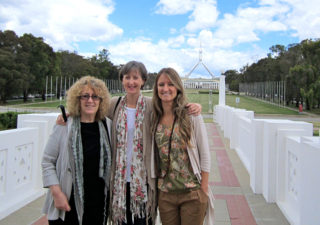
Post date – 21 November 2012
CHRE staff members’ trips to Melbourne and Canberra
It has been a busy time for CHRE staff members during the beginning of the non-teaching break!
On November 12-13th, Dr Lisa Hartley, Dr Caroline Fleay and Dr Lucy Fiske from the Centre for Human Rights Education (CHRE) attended the Swinburne University Forced Migration, Migration and Humanitarianism in Australia and Beyond symposium in Melbourne. The symposium was attended by scholars and practitioners who are working on issues of forced migration in Australia and the region. Lisa, Caroline and Lucy thoroughly enjoyed the panel discussions, which focused on a range of issues such as humanitarianism, regional efforts to deal with asylum seekers, government policy and the management of forced migration. After the symposium they also were lucky to share stories over some Vietnamese food with former CHRE director, Professor Linda Briskman, founder of CHRE Dr Jim Ife and adjunct researcher Dr Sonia Tascon. It was great catching up with old friends and networking with others working in the asylum seeker and refugee rights field.
On November 14th – 16th, Lisa and Caroline also attended a two-day annual UNHCR Non-government Organisation, Legal and Academic Annual Consultation at Old Parliament House in Canberra. This consultation provided another opportunity to information share with service providers, advocates, academics and lawyers working in the asylum seeker and refugee sector. Lisa and Caroline learnt more about the current developments in Australia’s asylum seeker policy, including Nauru and Manus Island, and regional processing.
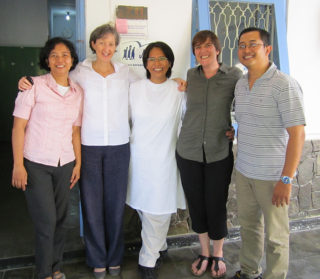
Post date – 9 November 2012
Centre staff visit Indonesia
Dr Lucy Fiske and Dr Caroline Fleay from the Centre for Human Rights Education visited Indonesia in October 2012, where they attended the 2nd South East Asian Human Rights Network International Conference on Human Rights and Peace & Conflict in Southeast Asia held in Jakarta. The conference confirmed that human rights are most definitely of concern to people in the region with over 250 delegates and papers presented on human rights issues from internal conflicts, refugees, migrant workers, sexuality, religious minorities, women’s rights, workers rights, academic freedom and much more. One of the Centre’s earliest graduates Inge Christianti delivered a very well received paper on peace journalism as a method of progressing human rights in Indonesia. It was a delight for Lucy and Caroline to catch up with Inge again after several years.
Also while in Indonesia Lucy and Caroline took the opportunity to learn more about how refugee movements and processing works in Indonesia. They met with the UNHCR, IOM and Jesuit Refugee Services in Jakarta, Bogor and Yogyakarta and attempted to visit an immigration detention centre in Jakarta but were refused entry. While in Yogyakarta, they were hosted by Taka, Doni and the team at JRS, who are doing excellent work supporting refugees and asylum seekers in Indonesia. Lucy and Caroline were very happy to meet a group of 32 Afghan and Rohingya men in Yogya and have come away with plenty of advocacy work to do.
On the one hand, many of the formal systems for asylum seekers and refugees in Indonesia are beset by a lack of capacity to respond to needs, corruption, poor understanding of refugee issues and at times, hostility and threats from some sections of society. On the other hand Lucy and Caroline also came away with great admiration for the work of groups like JRS and the Human Rights Working Group who are doing excellent work to advocate on behalf of asylum seekers and refugees, support them through the process and even physically protect them when threats are made to their safety. They also think there may be signs of increased hope of resettlement of refugees out of Indonesia as a result of Australia’s increased refugee and humanitarian intake.
Finally, Lucy and Caroline also met up with Dr Fentiny Nugroho from the University of Indonesia to discuss future research collaborations and joint PhD opportunities.
Post date – 8 November 2012
Publications: Refugee and asylum seeker rights – Dr Lucy Fiske
A number of pieces have been published this year on refugee and asylum seeker issues by Centre for Human Rights Education staff member Dr Lucy Fiske.
On 5 July 2012, “Want to Stop the Boats? Make refuge available off-shore” was published in The Conversation online. The article addressed the topical issue of “Australia’s politicians determined to “do something” to stop people risking their lives at sea on asylum boats headed for Australia.”
Along with Centre adjuncts Linda Briskman and Michelle Dimasi, Lucy also co-authored a paper which was published in Shima: The International Journal of Research into Island Cultures called “Collateral Damage: The impact of Australian asylum seeker policy on Christmas Islanders (2001-2011)”. The article’s abstract states that “Since the Tampa incident in 2001, Christmas Island has been a central site where Australia’s border protection and asylum seeker policies are visible. This article takes four key events over a ten year period to track the impact on Christmas Islanders and on the Islanders’ changing attitudes towards asylum seekers, detention and federal government policies. The views of Christmas Islanders are not often heard in public discourse about detention on the island. This article seeks to provide a platform for a snapshot of views and to call for a greater role for Islanders in decisions that profoundly affect their lives.
In October 2012, the Peacewrites Newsletter produced by University of Sydney’s Centre for Peace and Conflict Studies published a piece co-authored by Lucy and Linda Briskman, titled “Refugees left out in the cold again” on pages 5 – 6. The article speaks about the report of the Expert Panel on Asylum Seekers that the authors say “is deeply disappointing and negates core human rights principles. The panel claims its report is hard-headed and realistic. In reality it does nothing to progress Australia’s thinking on asylum seeking and remains firmly planted in a border protection framework. The recommendations are not based on consistent advice provided to it by expert health and welfare workers, lawyers, academics and community representatives, including many people who spoke to the Panel or provided written submissions.
Please click on the links above to read further.
Post date – 8 November 2012
Insider Resistance: Understanding refugee protest against immigration detention in Australia 1999 – 2005
Congratulations to Centre for Human Rights Education staff member Lucy Fiske who recently completed her PhD research titled Insider Resistance: Understanding refugee protest against immigration detention in Australia 1999 – 2005. Lucy interviewed refugees who had been detained in Australia and who had protested against their detention through a range of methods from writing letters and calling talk back radio through to refusal to comply with directions, hunger strike, lip sewing, escape and riot. The testimony of former detainees revealed the importance of human rights as a mobilising discourse and unsettle dominant explanations of protest as manipulative, criminality or bad behaviour. As well as political objectives, protests often served an important existential function. One participant explained that hunger strike was one way in which detainees could experience their own agency:
“Just to show you are alive you could make a decision to stop receiving anything in your body. That would show that you were alive, because you could make a decision, in a place that you can’t make any decision.”
Another participant echoed this sentiment, saying that all forms of protest were important:
“…of course, the protest helped. Because at least I did something for my rights. Because if I didn’t do those things, nothing different between me and this table. With me? I got a soul. I got a mind. I got thinking. While this table . . . Of course, I wouldn’t stay like that.” (Ismail)
The thesis is available online here.
October 2012
Post date – 6 November 2012
Director of the Centre – Awarded life membership at CARAD
Congratulations to Associate Professor Mary Anne Kenny who was presented with a Coalition for Asylum Seekers Refugees and Detainees (CARAD) Life Membership at the 2012 CARAD AGM held in October, in recognition of her valuable work over the years as a refugee advocate and her dedication in supporting those seeking asylum in Australia.
Event – Nauru Mark II: The politics of seeking asylum in Australia
The event ‘Nauru Mark II: The politics of seeking asylum in Australia’ that was run by the Centre for Human Rights Education at Curtin University on Tuesday 9 October 2012 was a successful evening with over 110 people in attendance. People from various industry backgrounds came along to listen to and ask questions of the invited speakers. Director of the Centre, Mary Anne Kenny, opened the evening with an introduction to the speakers and issues being discussed.
Professor Len Collard brought the Nyungar Welcome to Country where he presented a message stick to Dr Caroline Fleay from the Centre. Professor Collard spoke about the experience that the Indigenous people of Australia had with boats arriving, which was a great way to introduce the topic of those seeking asylum in Australia who come by boat today.
Dr Savitri Taylor spoke about the legislative amendments and legal framework enabling offshore processing, the Memorandums of Understanding with Nauru and Papua New Guinea and the Bali Process. Mehdi Nawa, a 16 year old young man who had spent time in detention on Nauru as a 6 year old child with his mother shared his story which was both brave and moving. The audience listened intently as Mehdi recounted his memories of people being sad and he recalled one man dying in detention.
Andrew Bartlett spoke about the political and public debate about asylum seekers during the Howard government Pacific Solution and now. He reminded the audience in all of the debates and discussion around the issue of asylum seekers that we need to remember the human side of the debate and to try to put ourselves in the shoes of those who begin the dangerous journey to find a safe place to live.
Mary Anne Kenny shared a story of an unaccompanied minor’s experience on Nauru where he spent 3 and a half years from the age of 13. The story spoke of the loneliness and sense of abandonment he felt on Nauru.
Dr Caroline Fleay followed with her presentation about ‘Being Returned – The experiences of asylum seekers on Nauru who were returned to Afghanistan.’ Caroline provided some statistics of the numbers of people that had been held in detention on Nauru under the Howard government and recounted experiences of both mental health workers and detainees who had been affected by the system of detention that Australia had implemented in those years.
Finally, Dr Lisa Hartley from the Centre spoke on behalf of Ishaq Ali Mohammadi who had also been detained on Nauru. He recalled how he was told by Australian immigration that it would be safe to return to Afghanistan however after he returned he found that it was not safe, so he came by boat to Australia once again. He was then held in detention in Australia for another two years before being granted a protection visa.
Thank you to all of the speakers who travelled to be in Perth for the event, and we also thank the Hazara men for their bravery in sharing their stories of their experiences in detention on Nauru.
Please click this link to listen to the recording of the presentation either by streaming or downloading the video or audio file.
(Photographs by Gaylene Galardi)
September 2012
Post date – 9 October 2012
Article – Rethinking the Guardianship of Refugee Children after the Malaysian Solution
An article titled Rethinking the Guardianship of Refugee Children after the Malaysian Solution, written by Mary Anne Kenny and Professor Mary Crock from the University of Sydney on issues relating to the guardianship of unaccompanied children and young people who arrive in Australia seeking asylum has just been published in the September 2012 edition of the Sydney Law Review.
The authors write, “The arrival of children seeking asylum in Australia without a parent or guardian continues to pose challenges for the Australian government’s legislative and policy framework. The central problem is the potential for conflict between the Minister for Immigration’s responsibility as guardian under the Immigration (Guardianship of Children) (IGOC) Act 1946 (Cth) (‘IGOC Act’) and the Minister’s roles under the Migration Act 1958 (Cth) (‘Migration Act’). The rise in the number of unaccompanied children presenting as irregular maritime arrivals has led to various attempts to challenge Ministerial interpretations of the IGOC Act. The authors show that successive governments have fought hard to deny much or any content to the Ministerial role of guardian. They examine a series of cases leading up to the High Court ruling which invalidated Australia’s ‘Arrangement’ to transfer asylum seekers, including unaccompanied minors, to Malaysia.”
To read the full article, you can download a copy from here. Click here for the full edition of the Law Review Volume 34, Number 3, September 2012.
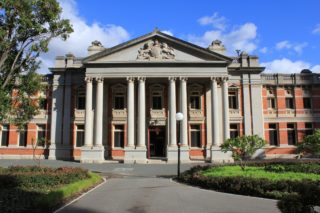
Post date – 26 September 2012
Associate Professor Mary Anne Kenny, guest speaker at Supreme Court
On Wednesday 19 September 2012 Centre Director, Associate Professor Mary Anne Kenny, was one of three guest speakers at the Australian Academy of Law /Australasian Law Teachers Association 2012 Perth Roundtable on the subject of “Trends in Legal Education for Practice“.
The event was held at the Supreme Court of Western Australia. It was opened by the Governor, His Excellency Malcolm McCusker QC, and was chaired by the Honourable Chief Justice Robert French. Over 100 people attended the event which was organised by Curtin University.
A copy of her paper is attached. Copies of all of the papers for the event will be located on the Australian Academy of Law website in the near future. You can now find Justice James Edelman’s paper at the following Supreme Court website link, on the subject of “Problems for a law curriculum in the 21st century“.
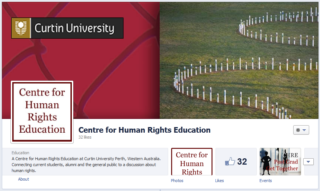
Post date – 20 September 2012
Find the Centre on Facebook
The Centre for Human Rights Education has just launched a Facebook page as a community contact point for students, alumni, and anyone interested in finding out more about human rights issues. The page will highlight Centre hosted events, current research and advocacy activities of the Centre, and links to topical human rights issues. If you have a Facebook account, please stop by and join our Facebook community.
Post date – 19 September 2012
Paper: Nauru – Repeating the Past
As the first asylum seekers are sent to Nauru from Australia, the voices and experiences of those who were held on Nauru under the Howard Government must be heard. ‘Repeating Despair on Nauru: The Impacts of Offshore Processing on Asylum Seekers’, a paper by Caroline Fleay, highlights the despair that was generated by offshore processing on Nauru.
“This paper highlights the human cost of detaining asylum seekers on Nauru, as experienced by hundreds of men, women and children between 2001 and 2008. The voices of those who endured detention on Nauru must serve as a warning to Australia that it is about to repeat a policy that was inhumane – the offshore processing of asylum seekers.”
The paper also highlights the concerns raised by the recent transportation of asylum seekers to Nauru. It has been sent to the Minister for Immigration and Citizenship and a range of other MPs in all political parties.
You can download the paper in full here.
August 2012
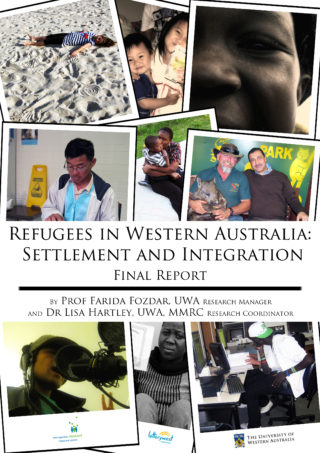
Post date – 22 August 2012
Photovoice exhibition – Refugees in Western Australia: Settlement and Integration
Prior to her appointment to the Centre, Dr Lisa Hartley coordinated a Lotterywest funded research project in 2011-2012 with Professor Farida Fozdar from The University of Western Australia (UWA) and the Metropolitan Migrant Resource Centre.
The research titled ‘Refugees in Western Australia: Settlement and Integration’, investigated the experiences of refugees settling in Western Australia with respect to areas such as education, health, employment, housing, identity and social support. The research involved focus groups with service providers; interviews with 76 refugees settled in Western Australia between one to two years and two to four years, and a photovoice representation exercise where refugees took photographs of their settlement experiences. The report will be released on the 27th of August and will be online on the UWA website.
The photovoice aspect of the project will be on display at the Western Australian State Library – at the ‘Nook’ between 27th August – 10th September 2012. The exhibition is a poignant visual illustration of the diversity of settlement experiences of refugees from their own perspectives. The exhibition is free of charge.
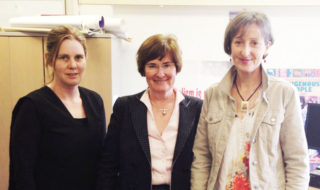
Post date – 20 August 2012
Radio Interview: Impact of Recent Expert Panel Report on Asylum Seekers
Director of the CHRE, Associate Professor Mary Anne Kenny, will be a guest on the ABC Law Report which airs on ABC Radio National on Tuesday 21 August 2012 at 3.30 pm Perth time.
Associate Professor Mary Anne Kenny and Professor Mary Crock, from the University of Sydney Law School, were interviewed about the recent Expert Panel Report on Asylum Seekers and the effect of the legislative changes put through the Federal Parliament last week. They were interviewed with a view to discussing how the changes would impact upon unaccompanied children and young adults who come to Australia via boat seeking asylum. Both Mary Anne Kenny and Mary Crock are involved in an ARC funded project looking at children seeking asylum in Australia “Small Mercies, Big Futures: A Study of Refugee Children and Youth in Australia”.
After the recording of the program, Professor Crock visited the Centre and met with staff and discussed research issues involving asylum seekers and refugees. A conference on the issue of children, youth and disabilities and situations of forced migration is to be held at the University of Sydney between 28-30 November 2012 (flyer attached).
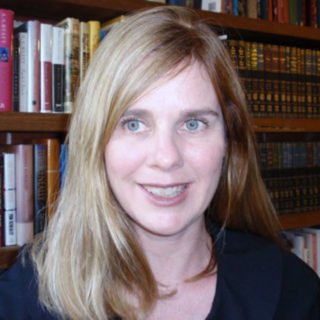
Post date – 15 August 2012
Introducing the Centre’s New Director
We are delighted to announce that Associate Professor Mary Anne Kenny joined the Centre for Human Rights Education on Monday 13 August 2017 as our new Director and Chair of Human Rights. Mary Anne has had a long career working as an academic and practitioner of law in the field of human rights and has been an Adjunct Fellow and Lecturer with the Centre since 2006. Her research, teaching and practice has particularly focused on the rights of asylum seekers and refugees. In addition to being an Associate Professor at the Murdoch Law School, Mary Anne has been a Visiting Scholar, Lecturer and Research Fellow at Oxford University, University of California, American University in Cairo, and the United Nations High Commissioner for Refugees in Canberra. She has also been the Chair of the Law Reform Commission in Western Australia and is currently a member of the Ministerial Council on Asylum Seekers and Detention that provides advice to the Minister for Immigration.
We are very pleased to welcome Mary Anne and we all look forward to working with her.
July 2012
Post date – 17 July 2012
Open Letter from Academics about Asylum Seeker Solutions
Dr Caroline Fleay and Dr Lisa Hartley of the Centre for Human Rights Education have assisted Associate Professor Anne Pedersen of Murdoch University compile an open letter that has been sent to many Members of Parliament regarding solutions for asylum seekers. Over 200 academics who specialise in research in the refugee and asylum seeker area have signed the letter.
The letter outlines the academics’ great concerns about the solutions that have been proposed by the major parties, such as turning back the boats, Nauru, the Malaysian Solution and temporary protection visas. Instead of these options, solutions are proposed that are focused on the needs of asylum seekers. The letter has also been sent to the Expert Panel that has been formed to make recommendations to the Federal Government about asylum seeker policy.
If you would like to read the letter, please click here to download the PDF.
June 2012
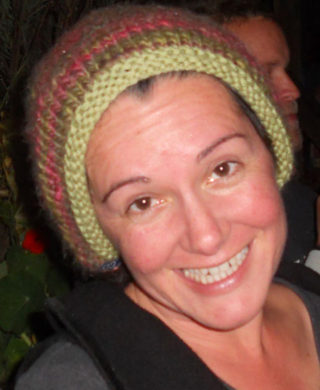
Post date – 8 June 2012
A sad farewell to Dr Karen Soldatic
We are very sad to announce that Karen Soldatic will be leaving the Centre for Human Rights Education next week to take up a position at the University of New South Wales. Karen has been working with the Centre over the past two and a half years, first as a Lecturer and more recently as a Research Fellow.
Over this time Karen has been extremely active in research, teaching and presenting at conferences, as well as advocacy in the area of disability rights. She has become a prominent public intellectual regarding disability rights. Karen will be greatly missed at the Centre, although she will remain as an Adjunct Researcher and we look forward to her continued involvement with us.
We wish Karen all the best in her pursuits in the new role.
May 2012
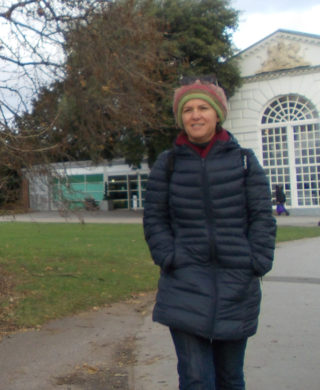
Post date – 9 May 2012
Publications: Disability Rights – Dr Karen Soldatic
Karen Soldatic has recently returned after spending several months in England as a British Academy International Fellow at the Centre for Disability Research, Lancaster University where she undertook field work on the impact of the Cameron Government’s welfare reforms on disabled women living in North West England. Together with colleagues from CeDR, presentations were held at Leeds University, Loughborough University, the University of Brighton Philosophical Society and the Radical Social Work Conference Hope University. Additionally a one one-day symposium was held at Lancaster on Disability – Spaces and places of Exclusion.
A number of Karen’s written pieces were published during her time overseas. They include an article (written with Helen Meekosha) in Social Work Education: The International Journal, published in January 2012, titled ‘Moving the Boundaries of Feminist Social Work Education with Disabled People in the Neoliberal Era‘. In their article, the writers “suggest that emerging discourses within the realm of affective equality can provide one possible avenue to expand social workers’ practice to encourage enabling practices under Australian neoliberal welfare-to-work regimes. These new debates around inequality and equality that have recently emerged show the structural relationship of power in which social workers are embedded.”
A research article accepted in February 2012 is to be published in the International Journal of Population Research. Titled ‘Finding Ernesto: Temporary Labour Migration and Disabled Children’s Health‘ (written with Helen Meekosha and Kellie Somers), seeks “to expose the implications of Australia’s exclusionary and discriminatory disability migration provisions on the health and wellbeing of disabled children who have arrived in Australia through alternative migratory routes.”
Also in February 2012 a piece was published online in Social Policy and Society for their April 2012 edition of the journal. The piece is titled ‘Continuity or Change? Disability Policy and the Rudd Government’ (written with Barbara Pini). It “reports on shifts and continuities in policy relating to disabled people and the administrative apparatus of federal disability policy under the Rudd government (2007–10).” Through their discussion, the writers “demonstrate the ways the altered vocabularies, practices and instruments of the state have manifested in relation to disability policy in Australia, ultimately shaping opportunities for either inclusion or exclusion at the national level among disabled people.”
On 13 April, an opinion piece (written with Jo Milner) titled ‘Ashley’s treatment: the arrested development of a disabled child‘ was published online on The Conversation website. This piece talks about “the ‘Ashley Treatment,’ a highly experimental medical intervention designed to arrest the physical and sexual development of severely disabled children. This invasive medical procedure is named after the girl on whom it was first performed in 2004, when she just six years old.”
Most recently a piece was published on the 19th of April on the Our Kingdom: power and liberty in Britain website. The piece is titled ‘Britain’s disabled are being abandoned by the state’, and focuses on “[t]he slashing of funding for a range of benefits, tax credits and vital social services and community programmes [which] will hit the most vulnerable … disabled people amongst others.” (written with Donna Reeve, Hannah Morgan and Chris Grover).
March 2012
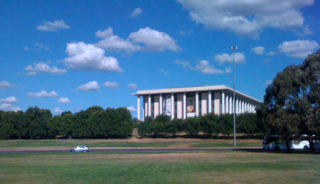
Post date – 7 May 2012
Articles: Human rights and militarism – Dr Miyume Tanji
As part of her time at the National Library of Australia fulfilling a Japan Study Grant, adjunct researcher Dr Miyume Tanji, has recently published two articles. Japan Study Grants are open to postgraduates, honours students, academic staff or independent researchers in Australia who wish to use the Japan-related collections of the National Library for their research. The Japan Study Grants fund travel and living costs in Canberra for up to four weeks to use the National Library’s Japanese collections.
The one was published through Taylor and Francis Online and is titled Rethinking Resistance in Everyday Okinawa: Diaspora, Transformation and Minor Literature, which “examines the connection of cultural memory to political resistance explored in three recent works on Okinawan popular culture”. This is in the context of “The ‘‘third wave’’ of Okinawan protests [which] are generally about demanding safety and human rights for Okinawan people, still neglected under the continuing excessively heavy US military presence.”
The second publication is a chapter in Gender, power, and military occupations : Asia Pacific and the Middle East since 1945 (edited by Christine de Matos and Rowena Ward), titled ‘Chamorro Warriors and Godmothers Meet Uncle Sam: gender, loyalty and resistance to US military occupation in postwar Guam’, published through Routledge.
February 2012
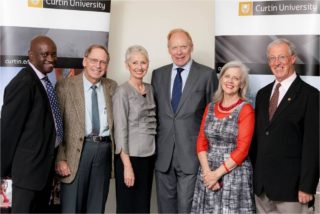
Post date – 5 March 2012
Anna Haebich: John Curtin Distinguished Professor
The title of John Curtin Distinguished Professor was awarded to Professor Anna Haebich and the other three recipients at an official presentation on 28 February, 2012. This high honour is made in recognition of Professor Haebich’s ongoing contribution to the University as evidenced by her exceptional national and international reputation, academic achievements and record of public service. The title is awarded for a period of five years. Congratulations Anna!
Post date – 27 February 2012
Introducing new and continuing staff members
We welcome Dr Lynda Blanchard to the Centre for 2012. Lynda joins us as a Visiting Lecturer from the Centre for Peace and Conflict Studies, University of Sydney. She is former executive officer of the Sydney Peace Foundation, executive member of the National Committee on Human Rights Education, executive member of the International Institute for Peace Through Tourism (Australia), international member of TRANSCEND Peace and Development Network, and consultant to the Conflict Resolution Network. We are excited to have Lynda with us as she will be lecturing in our human rights postgraduate programs and continuing her research that centres on issues of cultural difference and social justice.
We also welcome Dr Lisa Hartley for Semester 1, 2012. Lisa has a PhD in social psychology and her research interests include refugee resettlement issues in Australia; prejudice towards marginalised social groups and interventions to reduce prejudice; and understanding the ways in which people can mobilise as members of groups to overcome disadvantage and injustice through activism and advocacy. She has worked with refugees in the community and continues her advocacy work with asylum seekers in immigration detention. Lisa is also on the management board of the Coalition for Asylum Seekers, Refugees and Detainees (CARAD) in Perth and is the Vice Chair of the advocacy organisation Asylum Seekers Christmas Island (ASCI).
In addition, we continue to have Gaylene Trethewey as Project Officer working with the Centre this semester. Gaylene is a Master of Human Rights graduate and as well as providing support for our online teaching, she is developing our student and community engagement programs.
January 2012
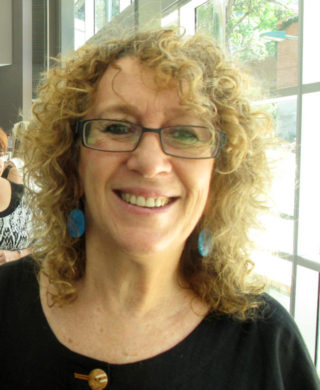
Post date – 27 January 2012
A sad farewell to Professor Linda Briskman
We are very sad to say that after more than five years as the Chair of the Centre for Human Rights Education, Linda Briskman is leaving today to take up the position of Professor of Human Rights at the Institute of Social Research, Swinburne University. We wish her all the very best back in Melbourne.
Over the past five and a half years, Linda has been extremely active in research, teaching, presenting at international and local conferences, and advocacy in the areas of refugee and Indigenous rights, citizenship and racism issues. All of her fine work has significantly contributed to raising the profile of human rights in Australia and beyond. Linda has written many scholarly journal articles, book chapters, books, and online opinion pieces during this time. She has also become a prominent public intellectual regarding the treatment of asylum seekers and Indigenous issues in Australia.
Through Linda’s leadership, the Centre for Human Rights Education has tripled in size in both employees and postgraduate students. The Centre’s profile has also broadened both locally and internationally. Linda will be greatly missed for her uncompromising passion for advocating for the human rights of all and for pushing the boundaries in education and research.
Linda will remain as part of the Centre as an Adjunct Professor and we all look forward to continuing to work collaboratively with her.
If you would like to contact Linda at Swinburne, her new email address from 6 February is: lbriskman@swin.edu.au

